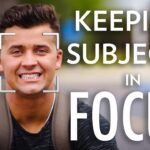![[bccogsep: a french test battery evaluating cognitive functions in ms]. - pubmed - ncbi Finally, the performance of two [bccogsep: a french test battery evaluating cognitive functions in ms]. - pubmed - ncbi Finally, the performance of two](http://www.conversation-en-francais.com/wp-content/uploads/2017/08/bccogsep-a-french-test-battery-evaluating_1.png)
In French language, there’s no standardized procedure to evaluate cognitive function in patients with ms (MS). This kind of assessment is however very helpful to look for the effects from the disease on cognitive function, to judge the condition progression and also the effects of usual treatments on cognition. This research aimed to build up and validate a French language battery according to "the Brief Repeatable Battery of Neuropsychological tests for Ms" (BRB-N) frequently used far away. Within an early on, battery was made up of in france they form of the five BRB-N tests that were added 4 tests assessing immediate and dealing memory in addition to executive function. 52 healthy control subjects (20-half a century) took part in the research. A principal component analysis (PCA) of the data examined the contribution of every test in to the battery. 93 other healthy subjects took part in another phase where analyses of variance were transported to investigate aftereffect of the primary demographical variables. Finally, the performance of two patient groups (20 having a EDSS score3) was when compared to healthy controls to be able to investigate ale our battery to identify cognitive impairment in MS patients. The PCA demonstrated that every test, except one, were built with a specific contribution towards the battery. The ultimate battery (BCcogSEP) was thus made up of 8 tests. MANOVA and ANOVA demonstrated significant results of age, sex and academic level on performance. Because of this, a process allowing to take into consideration these 4 elements was created. Battery could identify cognitive impairment in MS patients, even if your disease isn’t severe. Within this situation, deficits were noticed in tests assessing executive function, information processing speed, immediate and dealing memory. This short battery with reliable psychometric characteristics enables the interpretation of the MS patient’s performance thinking about his/her demographical characteristics and has the capacity to identify cognitive abnormalities even just in situation of mild physical handicap.
Resourse: https://ncbi.nlm.nih.gov/pubmed/
Cognitive Functions: The Four Function Axes
Video COMMENTS:
HitomiAyumu: Do you have any articles that go into more detail?
CelebrityTypes: http://www.celebritytypes.com/articles.php
Lee Morgan: Wow, thanks guys!
CelebrityTypes: Thank you, Lee!
Scoopy Scoop: None of the function axes suit me, am I a special snowflake now?
CelebrityTypes: 17th type.
Angel Rodarte Jr.: Will you guys develop a test on your site that will show which judgment/perception axis people relate to more. I feel like this would be a much more valid way of finding type, especially because of all the new ground you all have made within Jungian typology. Something like your "Caught between types, take this quick test to find out which one you relate to more" kind of thing on the your website.
CelebrityTypes: We used to think it was impossible, but recently had an idea. Stay tuned.
Atom Nous: Waiting!







